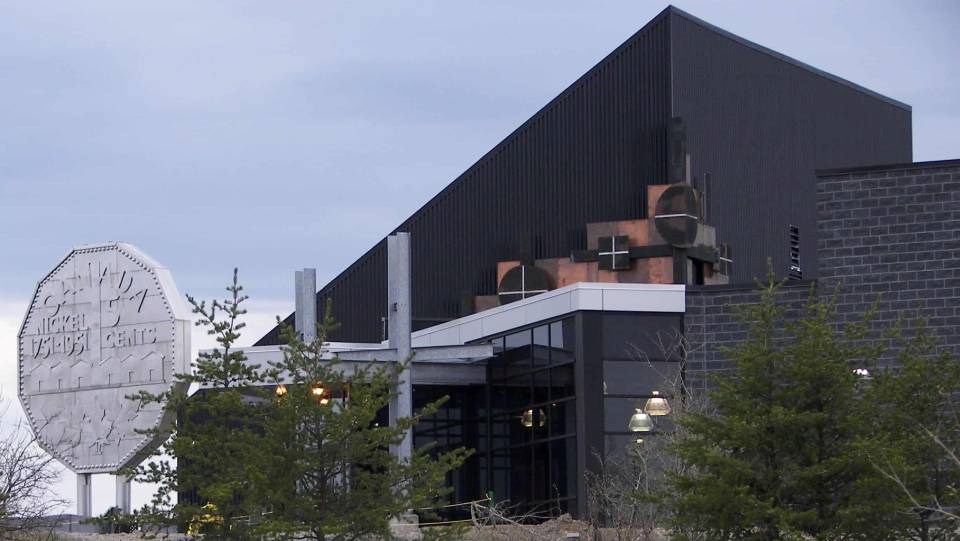Poor planning and ineffective project management are being blamed for cost overruns at the expansion of the Dynamic Earth science exhibit in Sudbury.
An in-depth look at the project, outlined in the 2023 Annual Report released by Ontario’s Auditor General Nick Stavropoulos on Dec. 6, notes that costs ballooned to the current $15 million from its original estimate of $5 million.
The multi-year project, which is being overseen by Science North, involves new construction at the tourist attraction’s Big Nickel Road site in Sudbury’s west end, as well as additional programming and educational materials that will be accessed by users across Northern Ontario and Canada.
SEE: The Drift: Sudbury's Dynamic Earth aims to tell a 'modern mining' story
The ‘Go Deeper’ project got underway in 2019, with an initial estimated completion date of February 2023. But that date was pushed to 2024 due to delays caused by the COVID-19 pandemic, remediation requirements, and a lack of funding, the report notes.
“We found that the cost overrun and delay were caused by poor planning and ineffective project management,” it says.
“For example, no reliable third-party estimate was completed during the planning phase to assess the reasonableness of the cost projections.
“A more reliable cost estimate would have been produced if a consultant with an engineering and construction background had been engaged during the planning phase.”
The auditor general was also critical of the organization’s failure to involve its project management team during the planning phase of the project, whose job it is to co-ordinate with stakeholders, manage deadlines, and resolve issues that arise.
“With costs increasing and no funding available, key elements of the project have been paused and Science North has further reviewed the project to identify areas to reduce scope and costs,” the report says.
Stavropoulos was also critical of the organization awarding a $2-million excavation contract to Technica Mining after it had committed to $1.5 million in sponsorship funding.
“The contract was single-sourced using an exemption approved by the CEO without board input as Science North’s procurement policy provides unlimited purchasing authority to the CEO,” the report notes.
According to the agreement, the company is to provide five annual payments of $300,000 between 2022 and 2026. As of September, Science North had received $600,000 of that, with $900,000 remaining.
“The sponsorship agreement allows for the termination of the contract if the company ceases to carry on business.”
Additionally, the report examines the organization’s plan to build two new science centres, in Thunder Bay and Kenora, which was estimated to cost more than $90 million.
According to the auditor general, Science North moved forward with its construction plans without a cost-benefit analysis and assessment of alternative options, and after receiving only “conditional board support” for the expansion.
The science centre also failed to seek out funding from either government or the private sector before moving ahead with its plans.
“Science North estimated that the annual operating budget for the two new science centres would total $5.5 million, and at the time of our audit was in discussion with the Ministry (of Tourism, Culture and Sport) to request $4 million in annual operating funding for these facilities and projects,” the report notes.
“Centre management projected that self-generated revenue would cover the remaining $1.5 million. The ministry had not assessed the feasibility and financial sustainability of the expansion to Thunder Bay and Kenora.”
These findings come amid a pre-pandemic drop in attendance at the science centre.
According to the report, attendance levels in 2018-2019 declined by 8 per cent from its peak attendance in 2016-2017. A reduction in attendance at the centre’s IMAX theatre by 25 per cent from 2015 to 2019 is cited for the decrease.
However, visitor attendance is improving. The science centre reported that attendance in 2022-2023 increased by 3 per cent from pre-pandemic levels, and attendance is anticipated to stay at that level for the next three years.
The report includes 16 recommendations and 42 action items to address its findings.
In response, Science North said it agrees with the Auditor General’s recommendations and would “seek to implement the recommendations as resources allow.”
“Science North will work with the Ministry of Tourism, Culture and Sport and its board of trustees to improve performance measures, taking into consideration metrics that include all legislated mandates and further enhancing the organization’s transparency and accountability through its business plans and annual reports,” the report says.




